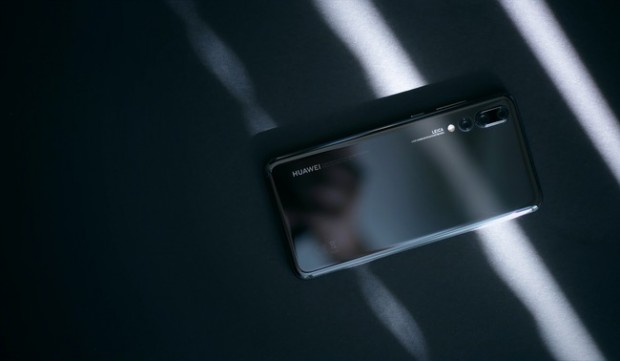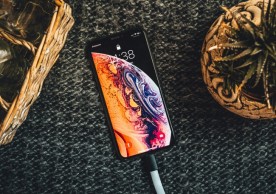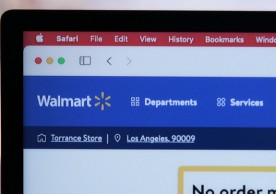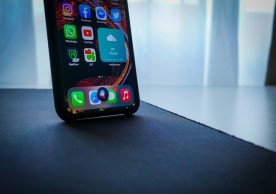Huawei's Kirin Breaks into Top 5 Chipmakers, Google's Tensor Awaits Recognition
Huawei's Kirin Breaks into Top 5 Chipmakers, Google's Tensor Awaits Recognition
Austin Jay
Despite facing opposition, Huawei marked a triumph with the Mate 60 Pro's massive success in China, selling 1.6 million units in just six weeks.
The brand's Kirin chips now rank among the top five global chipmakers, a significant climb after US sanctions.
The Top Leading Chip Makers in the World
Counterpoint Research's Q3 2023 report places Huawei's chip arm, Hisilicon, in fifth position, holding a 3% share globally.
The Mate 60 series, fueled by the 5G-enabled Kirin 9000s chip, was pivotal in this rise.
Huawei's upcoming devices, like the Mate X5 foldable phone and MatePad Pro 13.2, have garnered acclaim, setting the stage for the mid-range Nova 12 series, which will be developed to integrate Kirin processors in 2024.
This achievement indicates Huawei's ability to persevere in the face of adversity and go forward with innovation and user pleasure in China.
With a dominant 40% market share, Qualcomm continues to be the leader in the fiercely competitive world of chipmakers. Apple trails in second place, securing 31% thanks to the success of the iPhone 15 series. MediaTek clinches third place with a 15% share, while Samsung follows closely behind with a 7% market hold.
Huawei's aftermath sees Unisoc taking the sixth spot with a 2% market share. Google's Tensor SoC enters the arena, holding a 1% market share and standing seventh on this competitive list.
The rankings highlight the diverse landscape of chipmakers vying for supremacy in the ever-evolving market.
Other Competitors in the Chipmaking Field
In the bustling chip market, Unisoc takes the sixth spot, holding a 2% market share, while Google's Tensor SoC stands seventh with a 1% share.
Huawei's resurgence in chipmaking reshapes the tech scene. Despite challenges, its innovation and stronghold in its home market have fueled remarkable growth.
With the Nova 12 series on the horizon, equipped with Kirin processors, Huawei's trajectory in the years ahead becomes an intriguing watch.
The company's ability to sustain this momentum and expand its reach globally will certainly define its future course in the competitive chip industry.
Also Read: Qualcomm Rumored To Take Big Leap With Snapdragon 8 Gen 4 SoC
What is Google's Tensor Chip and Why Did it Struggle to Take Recognition?
The Tensor G3, Google's latest chipset powering the Pixel 8 series, introduces notable advancements in AI capabilities and device performance.
Based on Samsung's 4nm fabrication, this custom chip aims to deliver on-device AI experiences, promising substantial improvements over its predecessor, the Tensor G2.
Despite its innovative features, the Tensor G3 faces challenges compared to rival chipsets. While unique, The nine-core CPU configuration seems slightly outdated compared to newer designs from other manufacturers.
Performance benchmarks against the iPhone 15 Pro and OnePlus 11 indicate differences, with Apple's chipset showcasing an edge due to its architecture and clock speeds.
The Tensor G3's focus on AI is a highlight, empowering features like advanced camera enhancements and enhanced Google Assistant interactions.
However, concerns about potential overheating persist, although it manages heat better than earlier iterations.
While the Tensor G3 impresses with its AI prowess, its performance in intensive tasks might lag behind competitors, prompting careful consideration for potential buyers eyeing the Pixel 8 series.
Related Article: Apple Aims High, Eyeing Qualcomm's 5G IPhone Modem Replacement
most read
related stories
more stories from News
-
Google Play Store Introduces Simultaneous Downloads for Multiple Android Apps
Google Play Store now allows simultaneous downloads for multiple Android apps, streamlining the installation process. Read more for improved app management!
ernest hamilton -
Apple Issues Warning About Overnight iPhone Charging Habits
Apple warns users about the potential risks of overnight iPhone charging habits, emphasizing battery health. Learn more to optimize your device's longevity!
ernest hamilton -
Android Trojan Malware Targets Bank Accounts Using Fake Chrome Updates
Beware: Android users face a new threat! Trojan malware disguises as Chrome updates, aiming to steal bank account info. Stay vigilant and update security measures!
ernest hamilton -
Walmart CEO Ephasizes Walmart App Usage in Stores Amidst Reevaluation of Self-Checkout Systems
Walmart CEO emphasizes Walmart app usage in stores amidst a reevaluation of self-checkout systems. Learn more by reading the article!
ernest hamilton -
One UI 6.1.1 Reportedly Introducing Video AI Features to Samsung Devices
One UI 6.1.1 reportedly introduces exciting video AI features to Samsung devices. Explore the latest enhancements!
ernest hamilton -
Tencent Set to Launch 'Dungeon and Fighter' Mobile Game in May
Tencent is gearing up to launch the 'Dungeon and Fighter' mobile game in May, promising an exciting new gaming experience for fans of the franchise.
ernest hamilton -
Apple Confirms iPhone AI Plans with New Software Release, Unveils Eight Small AI Language Models for On-Device Use
Apple's latest software release confirms iPhone AI plans, unveiling eight small AI language models for on-device use, promising enhanced performance and privacy.
ernest hamilton -
HMD's Debut Self-Branded Phones: All Under $200
HMD introduces budget-friendly phones, all under $200, promising affordability without compromise.
ernest hamilton

















